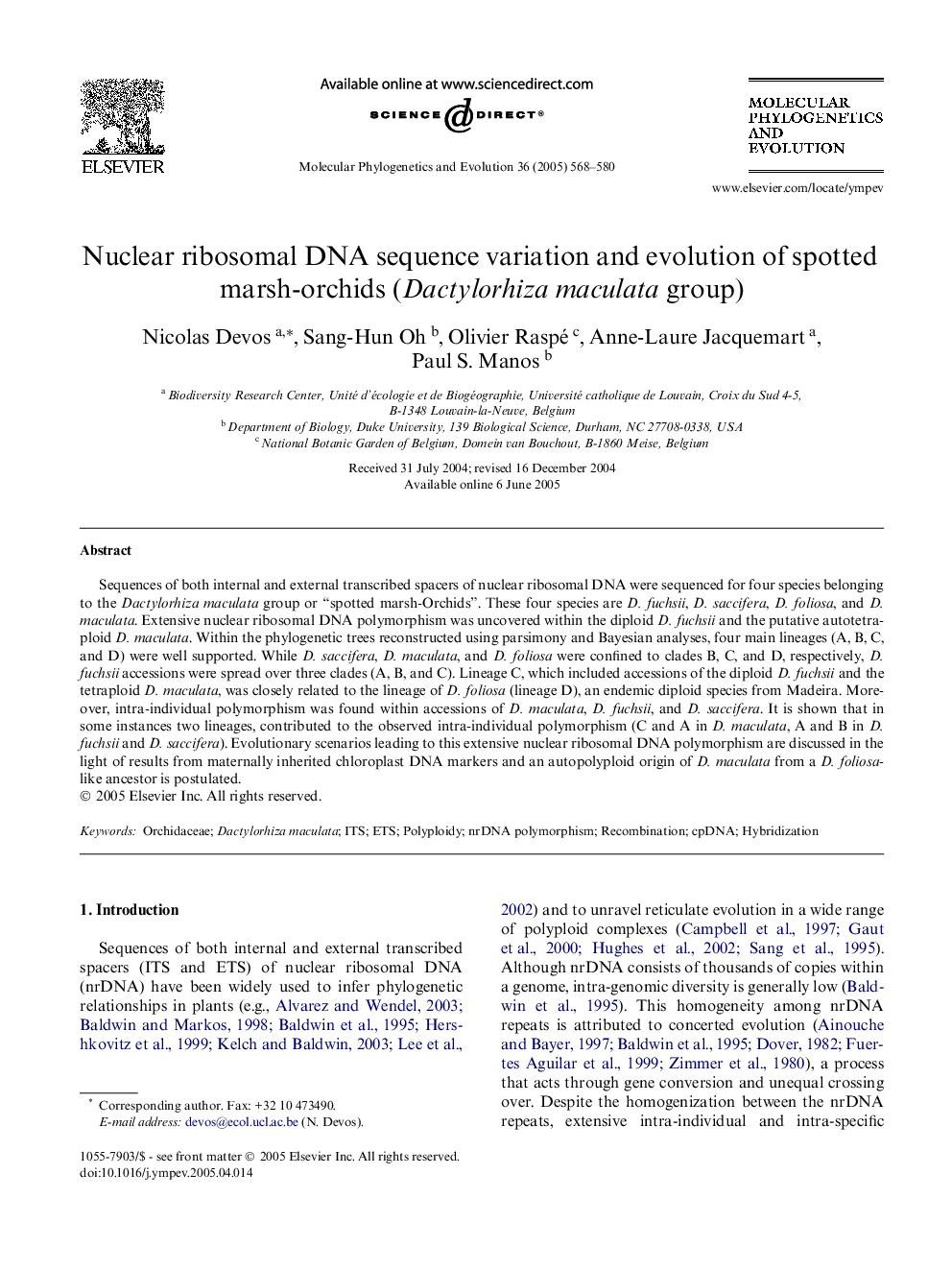| Article ID | Journal | Published Year | Pages | File Type |
|---|---|---|---|---|
| 9143059 | Molecular Phylogenetics and Evolution | 2005 | 13 Pages |
Abstract
Sequences of both internal and external transcribed spacers of nuclear ribosomal DNA were sequenced for four species belonging to the Dactylorhiza maculata group or “spotted marsh-Orchids”. These four species are D. fuchsii, D. saccifera, D. foliosa, and D. maculata. Extensive nuclear ribosomal DNA polymorphism was uncovered within the diploid D. fuchsii and the putative autotetraploid D. maculata. Within the phylogenetic trees reconstructed using parsimony and Bayesian analyses, four main lineages (A, B, C, and D) were well supported. While D. saccifera, D. maculata, and D. foliosa were confined to clades B, C, and D, respectively, D. fuchsii accessions were spread over three clades (A, B, and C). Lineage C, which included accessions of the diploid D. fuchsii and the tetraploid D. maculata, was closely related to the lineage of D. foliosa (lineage D), an endemic diploid species from Madeira. Moreover, intra-individual polymorphism was found within accessions of D. maculata, D. fuchsii, and D. saccifera. It is shown that in some instances two lineages, contributed to the observed intra-individual polymorphism (C and A in D. maculata, A and B in D. fuchsii and D. saccifera). Evolutionary scenarios leading to this extensive nuclear ribosomal DNA polymorphism are discussed in the light of results from maternally inherited chloroplast DNA markers and an autopolyploid origin of D. maculata from a D. foliosa-like ancestor is postulated.
Related Topics
Life Sciences
Agricultural and Biological Sciences
Ecology, Evolution, Behavior and Systematics
Authors
Nicolas Devos, Sang-Hun Oh, Olivier Raspé, Anne-Laure Jacquemart, Paul S. Manos,
